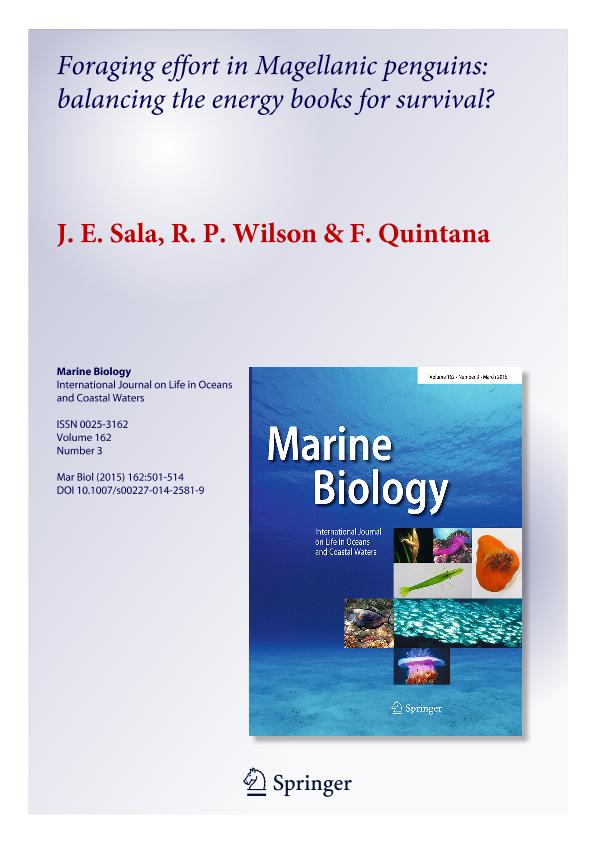Artículo
Foraging effort in Magellanic penguins: balancing the energy books for survival?
Fecha de publicación:
27/11/2014
Editorial:
Springer Verlag Berlín
Revista:
Marine Biology
ISSN:
0025-3162
Idioma:
Inglés
Tipo de recurso:
Artículo publicado
Clasificación temática:
Resumen
The determination of activity-specific energy expenditure of wild animals is key in ecology and conservation sciences. Energy management is crucial for seabirds during the breeding season when they need to maintain a positive balance between energy intake and the metabolic costs for them and their young. We analysed information from accelerometers to estimate the energy expenditure of Magellanic penguins (Spheniscus magellanicus) foraging at sea during the early chick-rearing period from four Patagonian colonies (i.e. Punta Norte, Bahía Bustamante, Puerto Deseado and Puerto San Julián). We studied how activity-specific energy consumption affected total energy expenditure during foraging and considered how this related to the current status and trends of breeding populations. The derived diving energy expenditure of penguins differed between sites, with inter-colony differences being primarily due to variability during the bottom and ascent phases of the dives: bottom phase energy expenditure was largely determined by the total distances travelled during the search, pursuit, and capture of prey, rather than the time per se allocated to this phase. Those colonies where the rate of population change was lowest also expended the most energy per trip due to greater times spent underwater and/or undertaking a higher number of dives per trip. Finally, the total energy consumption as well as the rate of energy expenditure per trip was good indicators of trends in breeding populations.
Archivos asociados
Licencia
Identificadores
Colecciones
Articulos(CCT-CENPAT)
Articulos de CTRO.CIENTIFICO TECNOL.CONICET - CENPAT
Articulos de CTRO.CIENTIFICO TECNOL.CONICET - CENPAT
Citación
Sala, Juan Emilio; Wilson, Rory P; Quintana, Flavio Roberto; Foraging effort in Magellanic penguins: balancing the energy books for survival?; Springer Verlag Berlín; Marine Biology; 162; 3; 27-11-2014; 501-514
Compartir
Altmétricas




